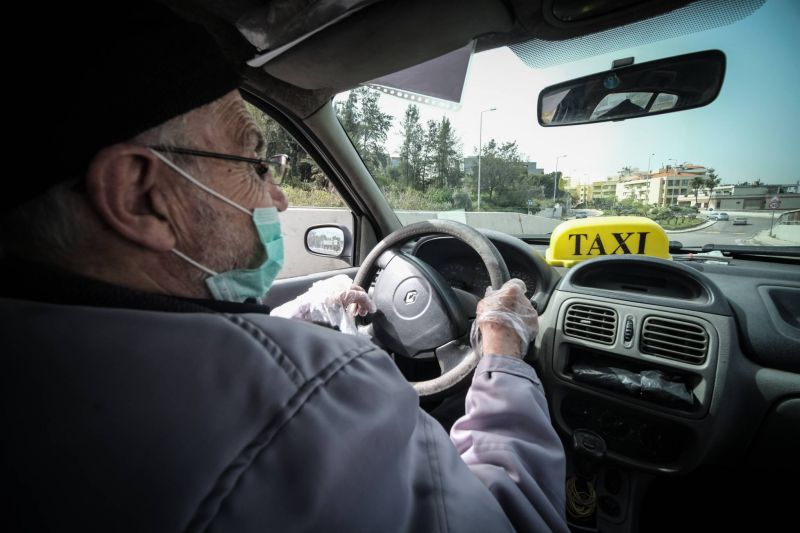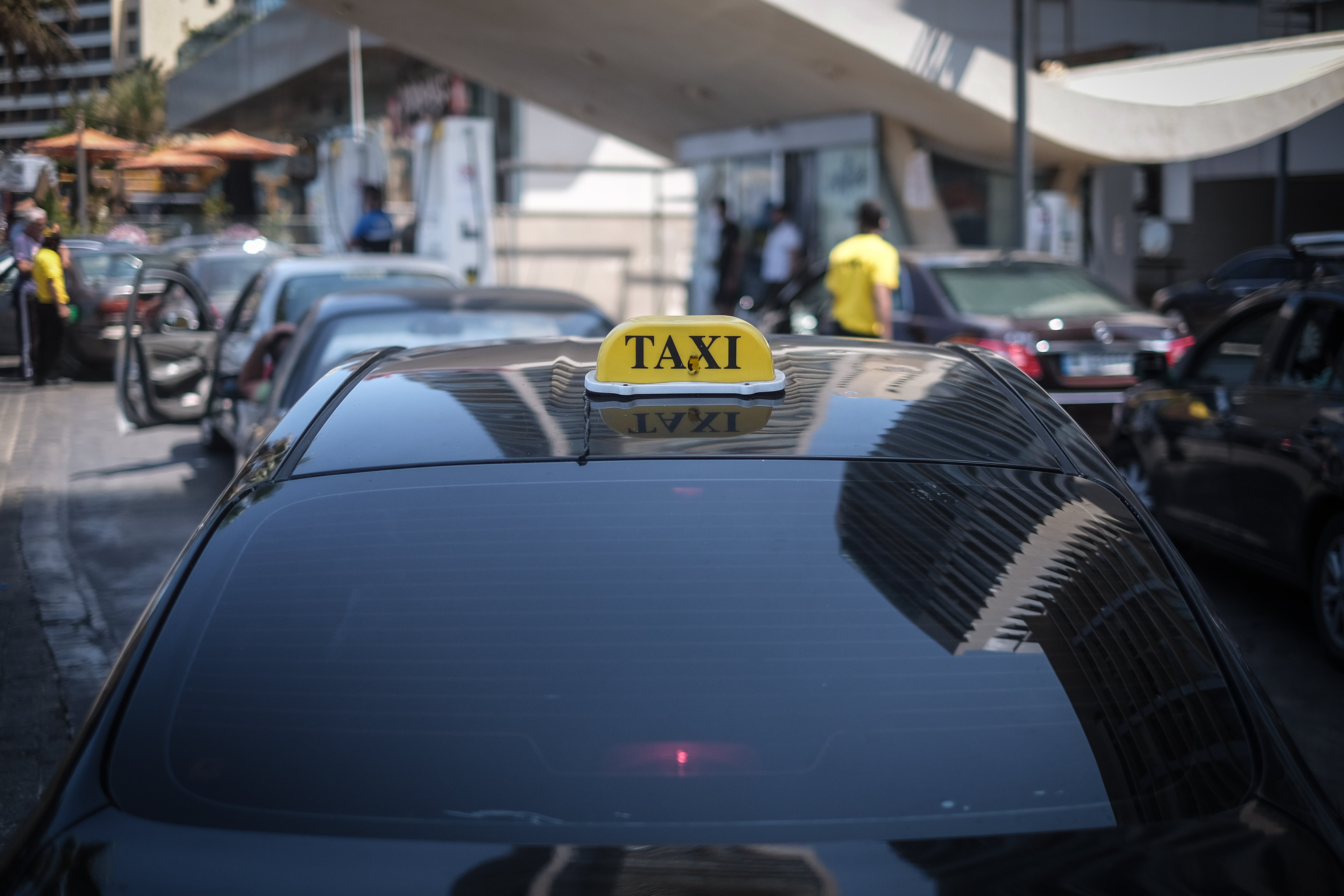
Many taxi drivers on ride-sharing apps have started setting prices themselves via direct messages with customers and refusing certain trips that they think will not be profitable. (Credit: João Sousa/L'Orient Today)
BEIRUT — Jean Bou Fadel used to trawl the streets of Beirut, eyes peeled for people standing on the sidewalk waiting for his arrival. He was a service — shared taxi — driver, and customers used to be plentiful. For riders, the honk of an approaching service was ubiquitous.
That was before Silicon Valley gave birth to multiple ride-sharing services that pried open taxi markets across the world through a combination of improved convenience for customers, artificially low prices subsidized by venture capital, and backdoor political deals.
“Now there’s no movement on the streets, so I subscribed to this,” Bou Fadel said, pointing at his smartphone.
In Bou Fadel’s case, he drives for Estonia-based Bolt. Others use Uber, or both. But a growing number of drivers for the apps say the prices assigned by the software are out of date and not responding fast enough to the rapidly rising cost of gasoline in Lebanon.
Drivers’ need for higher fares to make ends meet now collides head-on with many consumers’ need to cut costs whenever possible amid their own financial woes. With bus networks limited in hours and geographic reach, bike lanes nonexistent, and car ownership expensive, taxis are some people’s only method of getting to work.
Drivers frequently complain that the rideshare apps’ pricing systems do not keep up with rising gasoline costs, or adequately differentiate between a trip within Beirut, with a high chance of another fare being nearby, and a trip outside the city from which the taxi might have to return empty.
In the case of Uber, two drivers said it has been six or seven months since the last update to fares.
In February, 20 liters of 95-octane gasoline hovered around LL360,000 and the lira averaged LL20,930 per US dollar. Today, the same amount of gas sells for LL634,000 and the lira, which is at LL35,250 to the dollar on the parallel market, has reduced purchasing power. This means not only is gas more expensive for drivers, but the liras they take home don’t go as far at the supermarket as they did earlier this year.
In self-defense, many drivers for both ride-sharing apps have started setting prices themselves via direct messages with customers and refusing certain trips that they think will not be profitable.
 Many taxi drivers on ride-sharing apps have started setting prices themselves via direct messages with customers and refusing certain trips that they think will not be profitable. (Credit: João Sousa/L'Orient Today)
Many taxi drivers on ride-sharing apps have started setting prices themselves via direct messages with customers and refusing certain trips that they think will not be profitable. (Credit: João Sousa/L'Orient Today)
Rami Badawi, who lives in Dahieh and works in Mar Mikhael, uses Bolt to get to and from work. Drivers don’t always negotiate beforehand, in his experience, but it does happen, especially at night when there are fewer drivers on the street.
“It’s a headache, for sure,” he said. More than the cost of the trip, his issue is that drivers might refuse the long trek across town, particularly in the evening when he is returning from work.
“You don’t always know if [you’ll get a ride], maybe they won’t take you,” he said.
Multiple drivers said they avoid long trips because they are not as profitable as shorter ones.
“I don’t want to send messages to customers,” Jihad al-Tufaili said. “Because I’m scared. I don’t want someone to report me to the company,” which he worries could jeopardize his ability to work. But, he says, if he used Uber’s pricing, after taking into account the cost of gas and Uber’s 25 percent commission, “I’d get zero.”
Uber did not respond to requests for comment on their pricing systems in Lebanon or the way the app is currently used.
In response to questions from L’Orient Today, a Bolt spokesperson said that the company’s fares in Lebanon have increased more than 120 percent since last year and noted that Bolt does not charge drivers a commission in Lebanon.
The spokesperson said Bolt takes claims that haggling occurs on the platform “very seriously and tolerates no such behavior by the drivers.” The spokesperson also said customers are encouraged to report drivers who cancel (or ask the customer to cancel) after accepting a ride.
In Lebanon, Uber drivers have organized collectively to find a way out of the impasse. Darwish Taha heads a committee of Uber drivers in Lebanon formed two years ago amidst the economic crisis. The committee, which represents over 500 drivers according to Taha, organized a strike back in July to try to get the company’s attention to the need to update prices, but so far they’ve been unsuccessful.
Communication with the company has deteriorated dramatically since Uber closed its Beirut office early this year, Taha says. Without a direct line of communication with the company, the drivers have been airing their complaints without much response, they say, through the company’s generic support portals, email addresses, and social media accounts.
The company has stalled, giving vague promises that they are “studying the issue,” Tufaili says, based on emails from the company that he has seen via the drivers’ committee Whatsapp group. “Ok, how long are you going to keep studying the issue for?”
In a glimmer of hope, Taha says, the company has promised to dispatch an employee to Beirut in the coming weeks to sit down with the drivers’ committee and discuss the fares.
If Uber does not change its prices, Taha says, the drivers will be forced to continue negotiating with customers directly. “I don’t encourage them to do this,” he added, “But unfortunately you can’t do anything and you can’t say anything because the price doesn’t even cover gas.”
In the meantime, Taha says that most customers in Lebanon have gotten used to the new normal.
“Most people, the Lebanese, know that when you use Uber you need to talk to the driver either by message or phone call and he will tell you he needs more, you say ‘Ok’ and he comes to you. But the foreigners, when they come, and you say to them, ‘I need more,’ they’ll tell you, ‘No, you’re cheating me.’”
